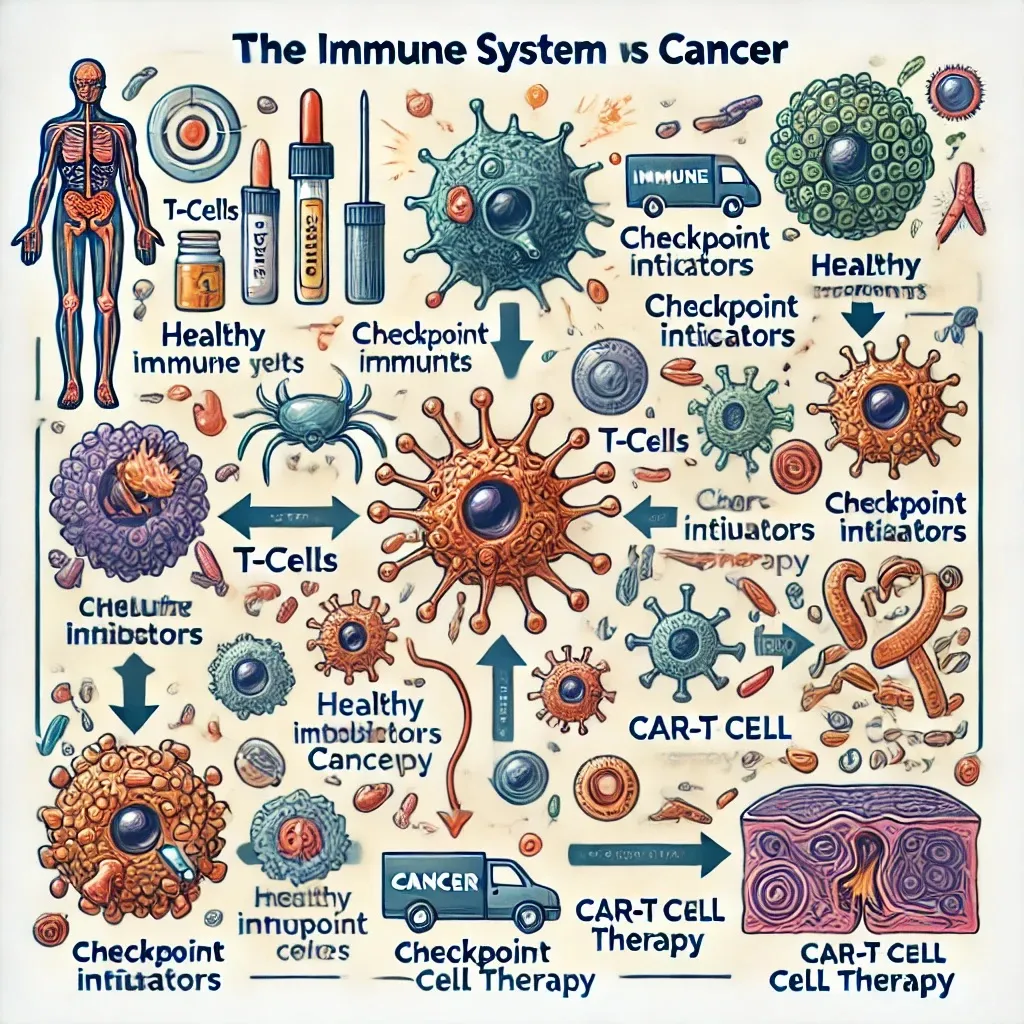The immune system plays a crucial role in detecting and destroying cancer cells. Immunotherapy harnesses the power of the immune system to fight cancer more effectively. Here is an overview of how the immune system interacts with cancer and how immunotherapy treatments work.
The Immune System and Cancer
Healthy Immune Cells:
- The immune system includes various cells that protect the body from infections and diseases. T-cells, a type of white blood cell, are particularly important in identifying and attacking cancer cells.
Cancer Cells:
- Cancer cells can evade the immune system by producing proteins that suppress immune responses or by disguising themselves as normal cells.
Immunotherapy Treatments
Checkpoint Inhibitors:
- How They Work: Cancer cells often exploit immune checkpoints—molecules on T-cells that need to be activated or inactivated to start an immune response. Checkpoint inhibitors block these checkpoints, allowing T-cells to recognize and attack cancer cells.
- Example: Drugs like pembrolizumab (Keytruda) and nivolumab (Opdivo) target the PD-1/PD-L1 pathway, enhancing the immune response against cancer cells.
CAR-T Cell Therapy:
- How It Works: CAR-T cell therapy involves modifying a patient’s T-cells to express chimeric antigen receptors (CARs) that specifically target cancer cells. These engineered T-cells are then infused back into the patient to seek out and destroy cancer cells.
- Example: CAR-T therapies like tisagenlecleucel (Kymriah) and axicabtagene ciloleucel (Yescarta) have shown success in treating certain blood cancers.
How Immunotherapy Enhances the Immune System
- Recognition:
- Immunotherapy helps the immune system recognize cancer cells more effectively. By blocking checkpoints or engineering T-cells, the immune system can better identify cancer cells as threats.
- Activation:
- These treatments activate the immune system, enabling a stronger and more targeted attack on cancer cells.
- Memory:
- The immune system can remember cancer cells, providing long-term protection against cancer recurrence.
Benefits of Immunotherapy
- Targeted Treatment: Immunotherapy specifically targets cancer cells, reducing damage to healthy cells.
- Durable Response: Many patients experience long-lasting responses and remission.
- Broad Application: Immunotherapy can be effective for various types of cancer, including those that are resistant to traditional treatments.
Conclusion
Immunotherapy represents a significant advancement in cancer treatment, leveraging the body’s natural defenses to combat the disease. By enhancing the immune system’s ability to recognize and destroy cancer cells, treatments like checkpoint inhibitors and CAR-T cell therapy offer new hope for patients. Continued research and development in immunotherapy hold the promise of even more effective cancer treatments in the future.
